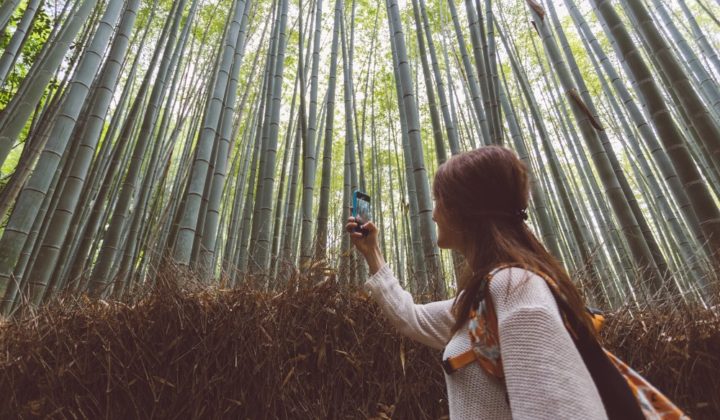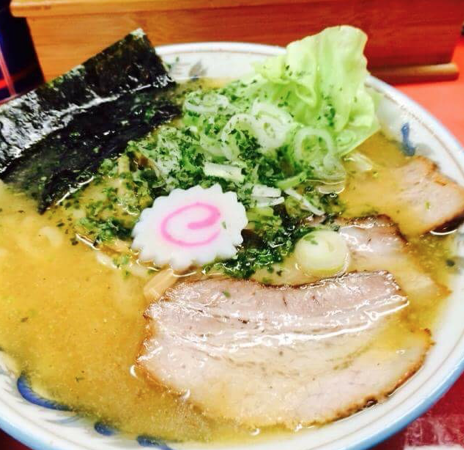“Why Japanese People, Why???” screams a white blonde guy staring at the whiteboard with Japanese kanji written on it, a typical American response, or at least how many Japanese see it. He shouts the same phrase when he encountered other hard to understand Japanese manners or traditions. He often appears on Japanese TV shows, even has two of his shows, and his name is Atsugiri Jason (real name Jason Danielson). He is one of the few foreign entertainers or how they called in Japanese gaikokujin tarento (外国人タレント). This article is about them!
Gaikokujin Tarento: Foreign Talents in Japan

The Japanese fascination with foreigners started quite a long time ago, in the middle of the 1940s. After Japan’s defeat in the second world war, the US culture gained huge representation because of Japan’s American occupation. With the American occupation came the art that was mostly banned before, like books, films, and of course, music. Japanese magazines wrote about music that referred to the phenomenon known as “Big in Japan.” It was used to describe foreign bands that are popular in Japan but not in their home countries. Have you ever heard about a band called Cheap Trick? Probably not, but in Japan, they were bigger than the Beatles. Some of the bands like Bon Jovi actually rose to popularity due to their success in Japan.
Foreigners are not uncommon in Japanese advertising either. If you turn on a Japanese TV, I can guarantee that around 10% of ads will have a foreign actor who often plays an extremely silly or super cool role. Apart from “common” foreigners, the Hollywood stars appear in Japanese ads too, although not as often as they used to. Over the years, stars like Brad Pitt, Leonardo DiCaprio, and Arnold Schwarzenegger have appeared in Japanese commercials. Of course, the person who stands out the most is Tommy Lee Jones, who has been promoting Boss Coffee for more than 15 years. The reasoning behind hiring foreigners to play in Japanese commercials is simple, to stand out.
The same reason is why foreigners are welcome on Japanese TV. They let a program to stand out by playing a “typical foreigner” character. One of the best-known foreign talents, Dave Spector once said:
“[I’m] doing things like the lowest bozo, circus kind of stuff. But it doesn’t bother me at all. A lot of times the foreigners on TV, models, and what-not, are compared to pandas. They use that term here — pandas — because they’re cuddly, you can go and have fun with them, and throw a marshmallow and that’s about it. And you don’t get involved any deeper than that. But…since I’m making half a million dollars a year, I’m very happy to be a panda.”
Foreigners participate in serious political and business discussions and teach foreign languages, too. Still, because it’s often the same people who acted like clowns in an entertainment program a few days ago, it’s hard not to feel disconnection.
The Most Popular Gaikokujin Tarento

This ranking list consists of people who appear on Japanese TV the most. It’s based on the data I collected while watching Japanese TV programs for one week, mostly in the morning and evening, so it might not be entirely correct but gives an idea about the popularity of the listed foreign talents.
-
Dave Spector
Dave Spector has been living in Japan for almost 40 years. He came to Japan as a journalist on a short assignment but convinced his management to let him stay for longer. He started studying Japanese in middle school, which allowed him to become fluent enough to participate in Japanese TV programs. Today, he comments on the variety of Japanese and American issues on Fuji TV’s daily morning news program Tokudane! and TBS’s weekly Sunday Japon. He says that he is allowed to criticize Japan as long as he praises it later. The right balance is the key.
-
Atsugiri Jason
Another ex-pat from the US came here to work for an IT company but later became well-known for his comedy acts. You probably know about his famous (infamous?) “WHY JAPANESE PEOPLE?” He is a controversial person in Japan’s foreign community because some people believe that he poorly represents foreigners by just exaggerating every stereotype Japanese people have about them. He is a regular on two shows, NHK’s “Eigo de asobo” (“Let’s Play in English”) and “Why!? Programming,”
-
Bobby Ologun
The variety of jobs Nigeria-born, now Japanese Bobby Ologun, has done is amazing. He started as an assistant to a trading company; then a comedian famous for his funny mistakes in Japanese; then he became a kick-boxer although not a very successful one; then a comedian again. What is his next career? Nobody knows, but considering the fact that he was indicted by the police for assaulting his wife, it might be in prison. He used to be a narrator for the You wa Nani Shi ni Nippon e (YOUは何しに日本へ).
-
Patrick Harlan.
Patrick Harlan, who is also known as Pakkun, is an American born comedian. He is a part of the Pack’n Mack’n comedy duo. Harlan is one of the first foreigners who started performing in Manzai, a traditional Japanese stand-up comedy. He used to work as an English teacher, which I believe can be quite inspiring for the large population of JETs and ALTs.
How to Get into the Japanese Entertainment World as a Gaikokujin Tarento

As I wrote before, being a foreigner gives you an advantage because, well, you are not Japanese and look different. There are plenty of articles describing the experience of people who participated in Japanese programs. If you want to do it as a side gig, it is not hard to find a program that is looking for a foreigner. One of such examples is NHK’s Cool Japan, which is aired on NHK World. Just fill in this form.
If you want to be a professional entertainer, you really need to work hard and pray for luck. As foreigners are often used to stand out, it can mean that any foreigner will do, if you attract attention. So your talent might not matter much. Often, entertainment companies prefer a person who asks for less money. Still, want to give it a shot? Try with modeling and talent agencies in Tokyo like Acqua Models, Free Wave, and Junes Models. Good luck!
What do you think about gaikokujin tarento? Let us know in the comments!





